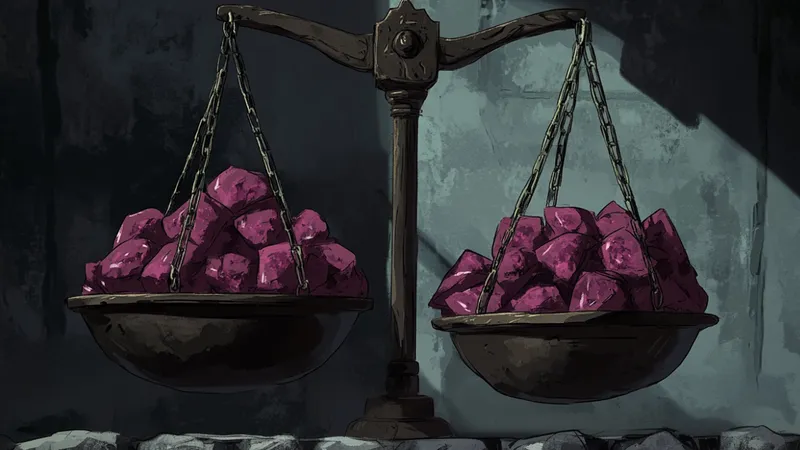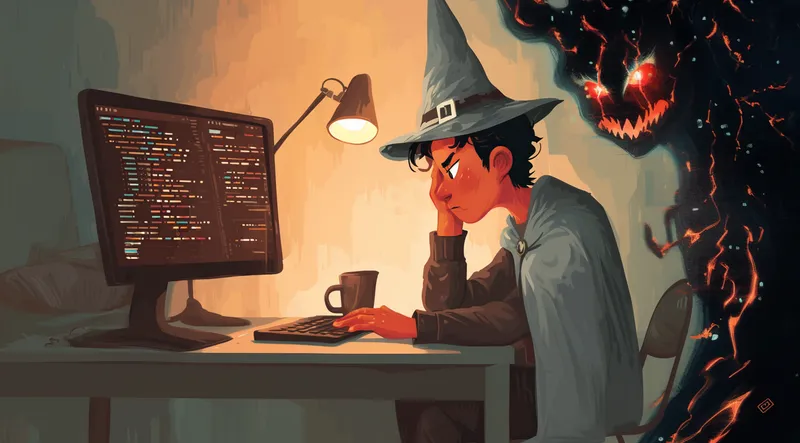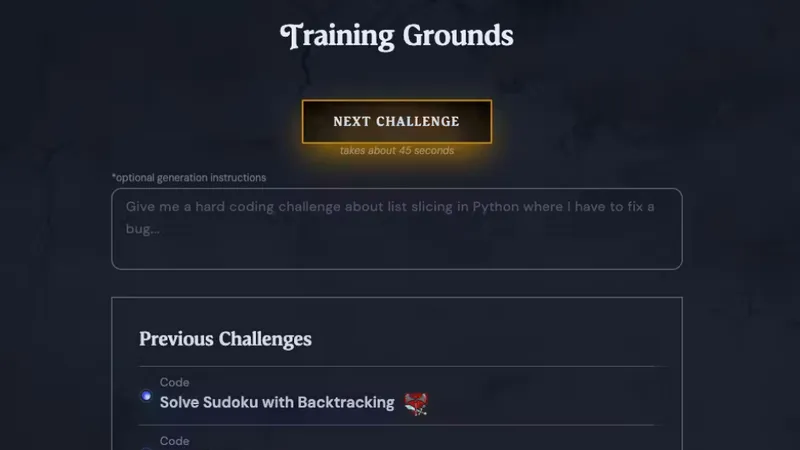Boot.dev Blog
-


The Boot.dev Beat. January 2026
Jan 13, 2026 by Lane WagnerWe’re off to an incredible start to 2026. December of 2025 broke a new record with 3,075,904 lessons completed and 82,578 training grounds challenges completed during the month! In January, I’m writing this on the 13th, and we’re already at 1,657,581 lessons and 47,795 challenges - so it’s looking like this is going to be a monster month. Best of luck to you all in the contest of the resolute.
-


The Boot.dev Beat. December 2025
Dec 07, 2025 by Lane WagnerWe plan to wrap up 2025 with some important quality of life updates! League placement badges, lesson bookmarks, and major improvements to the Training Grounds are just a few of the highlights. Thanks for learning with us, we’re gearing up the platform for a ton of new courses in 2026.
-


Supply and Demand Are Broken in Programming Education
Nov 24, 2025 by Lane WagnerMarkets are efficient, right? I understand that every ~10 years we find ourselves in some sort of stock market bubble, but I do believe that most markets are mostly efficient. Everyone out there is looking for a good deal, and despite the well-known irrationalities of human psychology, most of us seem to do a good job of looking out for number one.
-


The Boot.dev Beat. November 2025
Oct 30, 2025 by Lane WagnerIsaac’s new Retrieval Augmented Generation (RAG) course is now live! It’s a very in-depth course. It’s not for the faint of heart, and it will teach you not just about AI search, but full keyword and semantic search systems as well… the “RAG” name actually sells it a bit short.
-


I'm in Vibe Coding Hell
Oct 10, 2025 by Lane WagnerWhen I started thinking about the problems with coding education in 2019, “tutorial hell” was enemy number one. You’d know you were living in it if you:
-


The Boot.dev Beat. October 2025
Oct 01, 2025 by Lane WagnerSearchable challenges in the Training Grounds, and realtime voice chats with Boots are now a thing. Also, my children and those of half my employees are sick with the flu… I hope you’ve all been able to avoid it!
-


The Boot.dev Beat. September 2025
Sep 08, 2025 by Lane WagnerThe training grounds are LIVE! 21,000 challenges have been generated between the launch and as I write this, and we’re just getting started. Big things to come.
-


Create a Course on Boot.dev
Sep 04, 2025 by Lane WagnerWe create most of our courses at Boot.dev in-house, but we also love to collaborate with talented authors! If you’re interested in creating a course for Boot.dev, here’s some preliminary info about how we work:
-


Boot.dev Launches the Training Grounds
Aug 27, 2025 by Lane WagnerWe’ve always said Boot.dev is fun… but we’ve never said it’s easy. Subscribe to my YouTube channel if this video was helpful!
-


The Boot.dev Beat. August 2025
Aug 04, 2025 by Lane WagnerWe ran the biggest hackathon I’ve ever been a part of (500+ participants!) and saw some incredible projects come out of it. Thanks to everyone that participated, I’m excited for the next one!
-


2025 Hackathon
Jul 25, 2025 by Lane WagnerThe 2025 Boot.dev Hackathon has been completed! We had an amazing turnout this year, with over 500 participants across two categories: Amateur and Pro. The projects were incredible, and the competition was fierce.
-


The Boot.dev Beat. July 2025
Jul 09, 2025 by Lane WagnerThis month we were heads down building a lot of background stuff for big releases that are coming up - but we still did manage to get a few new features out the door!
-


The Boot.dev Beat. June 2025
Jun 10, 2025 by Lane WagnerWe’ve capitulated into the vibe coding era? Well… not really. But it’s cool to understand how AI agents like Cursor and Claude Code work under the hood.
-


Are Boot.dev Courses Free?
May 23, 2025 by Lane WagnerSometimes folks get confused and wonder, are Boot.dev’s programming courses really free? First of all, the simple answer is yes, all of the content on Boot.dev is free. That means that all the lesson explanations, the explainer videos, and the starter code is free. You can get all of it (not just the first few chapters, or the first course) without ever becoming a paid member.
-


The Boot.dev Beat. May 2025
May 11, 2025 by Lane WagnerOur biggest content release ever just dropped: the complete backend learning path, but now in Python and TypeScript! This is a massive update that we’ve been working on for a year, I hope you enjoy it!
-


The Boot.dev Beat. April 2025
Apr 27, 2025 by Lane WagnerThe Lord of the Mire has been the hardest boss yet (by far), weighing it with 150,000,000 HP. The community rallied during the event, dealing a whopping 132,282,452 damage in total, but not quite enough to bring him down.
-


The Boot.dev Beat. March 2025
Mar 07, 2025 by Lane WagnerOur new JavaScript course is live! ThePrimeagen’s course on building your own HTTP server from scratch is just around the corner, and the TypeScript track couldn’t be closer.
-


The Boot.dev Beat. February 2025
Feb 04, 2025 by Lane WagnerIt’s official: TJ’s C course walkthrough was released before GTA6! This is a great month for Boot.dev, and for humanity as a whole.
-


18 Months with GPT-4: Now Can I Fire my Developers?
Jan 17, 2025 by Lane WagnerAs the founder of a company where my largest static expense is engineering salaries, I’m over here just chomping at the bit, eagerly awaiting the moment I can fire everyone and line my pockets with all those juicy savings. See, about one year ago, I wrote an article titled, “9 Months with GPT-4: Can I Fire my Developers Yet?” and I thought I’d give you a little update on Allan’s employment status.
-


The Boot.dev Beat. January 2025
Jan 02, 2025 by Lane WagnerFastest boss defeat in the history of Boot.dev, a new AWS course, embers are live, and my children just won’t stop being sick for more than 4 days at a time. Win some, lose some.
-


Lists in Python
Dec 25, 2024 by Lane WagnerLists 🔗 A natural way to organize and store data is in a List. Some languages call them “arrays”, but in Python, we just call them lists. Think of all the apps you use and how many of the items in the app are organized into lists.
-


Loops in Python
Dec 23, 2024 by Lane WagnerIf you’re new to Python, or perhaps coding in general (welcome!), loops are what allow us to do the same thing over and over and over again, without having to re-type the same code each time. For example, let’s pretend I want to print the numbers 0-9.
-


Functions in Python
Dec 14, 2024 by Lane WagnerFunctions in Python allow us to reuse and organize code. For example, say we have some code that calculates the area of a circle:
-


Variables and Types in Python
Dec 13, 2024 by Lane WagnerVariables are how we store data as our program runs. You’re probably already familiar with printing data by passing it straight into print():
-


The Boot.dev Beat. December 2024
Dec 06, 2024 by Lane WagnerPotions got a rework, solutions were added to the Git course, and I’ve been sick for like 10 days straight… hope your Holidays are staying healthier than mine!